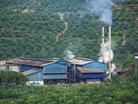Can Biofuel Help to Tackle EU Climate Change Concerns?

Eamon Ryan, the Minister for Transport in Ireland, urges the European Commission (EC) to examine biofuels imported from outside the European Union (EU), raising concerns about sustainability and transparency.
Eamon is calling on the EC to investigate biofuels imported from outside the EU, warning about the risk of unsustainable materials entering the EU market.
His concerns stem from reports of biofuels, particularly from China, being falsely labelled as sustainable while containing unsustainable ingredients like virgin palm oil, which violates EU regulations.
The importance of maintaining the integrity of the European oversight regime for biofuels is essential for Eamon.
He says: “EU member states and fuel suppliers rely upon the assurance of the European oversight regime for quality sustainable biofuels,”
“Such concerns can only be appropriately assessed and addressed at EU level.”
HVO as a green fuel alternative
Hydrotreated Vegetable Oil (HVO) is presented as a more sustainable alternative to conventional fossil fuels like diesel and kerosene, globally known to be unsustainable.
Switching to HVO can reduce emissions by up to 90%, making it a key player in the transition to cleaner energy.
Several fuel companies, including bp, have already introduced HVO at their filling stations, promoting it as a drop-in replacement for diesel.
The production of HVO is complex, involving several stages:
- Feedstock selection: Using vegetable oils or waste cooking oils
- Pretreatment: Cleaning oils to remove impurities
- Hydrotreatment: Converting fats in oils into hydrocarbons under high pressure and temperature
- Further processing: Enhancing fuel quality through isomerisation and hydrocracking
- Refining: Separating by-products to produce the final fuel
Despite HVO’s benefits, there is growing concern about the availability of sustainable materials needed to meet the increasing demand, with palm oil being used more frequently despite its environmental downsides.
Palm oil and sustainability concerns
Palm oil, a high-yielding crop, produces three times more than the second-most used oil, rapeseed.
Its use in biofuels is increasing because it produces fewer sulphur emissions and is cheaper than other oils, often ignoring palm oil’s significant environmental impact.
Only a portion of palm oil, around 50%, is used for biofuels, with the rest lost during production.
More worryingly, palm oil biodiesel has been found to emit three times more carbon than fossil fuels, leading to severe deforestation and biodiversity loss in Southeast Asia and South America.
This deforestation is a significant contributor to climate change, which is why the EU has committed to phasing out palm oil in biofuels by 2030.
Between 2008 and 2018, biofuel imports made from palm oil in Southeast Asia to Europe rose nearly 400%, raising alarms about its long-term sustainability.
Biofuels: promise and pitfalls
Biofuels, including HVO, offer a promising renewable energy source that can reduce emissions and decrease dependence on fossil fuels.
They are derived from organic materials, known as biomass, and can be used for transportation, heating, and electricity generation.
Advantages of biofuels include:
- Renewable, sourced from continuously replenishable materials
- Lower emissions, producing fewer greenhouse gases than fossil fuels
- Energy security, reducing reliance on oil imports
However, there are challenges too. The disadvantages include:
- The "food vs fuel" debate: Biofuel production competes with food crops
- Environmental impact: Particularly deforestation and habitat loss
- Energy balance: Some biofuels require more energy to produce than they provide
- Infrastructure: Fuel systems may need modifications to accommodate biofuels
Companies like bp are investing heavily in biofuels, recognising the need for cleaner, more sustainable energy.
bp has invested US$10m in WasteFuel, a company that turns waste into carbon-neutral fuels.
Their goal is to ensure bioenergy plays a central role in their future growth strategy.
Eamon's call for an investigation highlights the importance of sustainability in the biofuel industry.
Ensuring biofuels are genuinely renewable and free from unsustainable ingredients like virgin palm oil is essential to protect the environment and meet climate targets, especially with the Paris Agreement soon approaching.
Concerns over fake biofuels
The concern over fraudulent biofuel imports stems from the suspicious increase in biofuels, suggesting they may not all come from waste oil sources.
“The volume that has increased recently doesn’t seem that feasible,” Eamon warns, raising a red flag for EU authorities to investigate.
Dr Hannah Daly, Professor of Sustainable Energy at University College Cork, echoes Ryan’s concerns.
Noting that while HVO is marketed as a seamless replacement for diesel, there are signs it may be produced using unsustainable materials.
“Instead of being produced from waste, much of HVO is actually produced using pure palm oil, which could be inadvertently contributing to tropical deforestation,” Hannah warns.
As the demand for biofuels grows, it is crucial for the EU to implement stricter oversight and ensure that biofuels live up to their sustainability promises.
The green transition could be undermined by the very fuels meant to support it.
Receive the next edition of ClimateTech Magazine by signing up for its newsletter.
As part of this portfolio, make sure you check out Sustainability Magazine and also sign up to our global conference series - Sustainability LIVE.
Also check out our Sister Brand, Energy Digital.
- Shell, bp, Tata Steel: Europe’s Energy Transition Could StopSustainability
- Equinor, bp & TotalEnergies Behind UK Carbon Capture ProjectCarbon Capture
- In Focus: How Boeing's Advancing Australia's SAF EconomySustainability
- How Aramco, Carbon Clean & Samsung E&A are Capturing CarbonCarbon Capture
